Tooth Decay In Wisdom Tooth
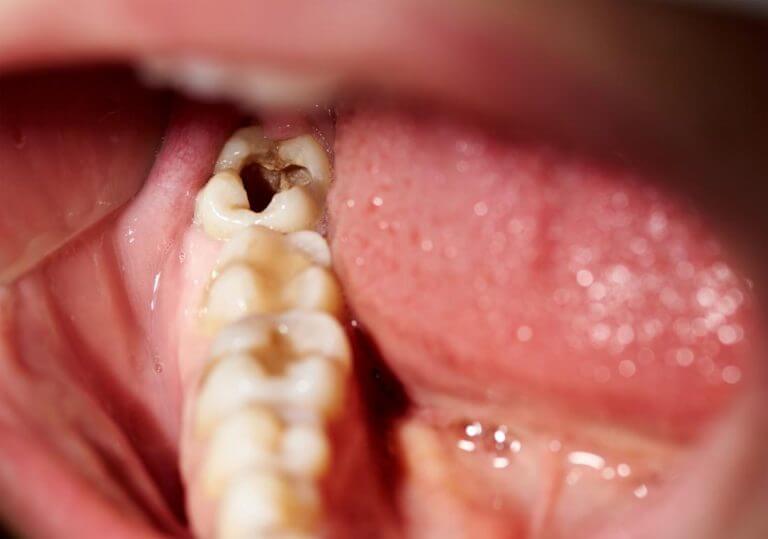
What Is Tooth Decay In Wisdom Tooth?
Tooth decay in wisdom teeth, or third molars, is a common dental issue due to their location and eruption challenges. These teeth often develop cavities or decay because they are harder to clean, improperly aligned, or partially erupted. Understanding the causes, symptoms, and treatment options for tooth decay in wisdom teeth is essential for maintaining oral health.
Before you contact a Toronto dentist to examine Tooth Decay In Wisdom Tooth, there are some things you should know as a patient:
- Why Does Tooth Decay Affect Wisdom Teeth?
- Signs And Symptoms Of Tooth Decay In Wisdom Tooth
- Treatment Options For Tooth Decay In Wisdom Tooth
- Managing Tooth Decay In Wisdom Tooth Until You Can See The Dentist
- Frequently Asked Questions About Tooth Decay in Wisdom Teeth
If you have questions about Tooth Decay In Wisdom Tooth or other dental problems, please contact us for more information.
Why Does Tooth Decay Affect Wisdom Teeth?
Several factors make wisdom teeth more prone to decay:
- Poor Oral Hygiene: Wisdom teeth are positioned at the back of the mouth, making them harder to brush and floss thoroughly. This can lead to plaque accumulation and cavities.
- Difficult-to-Reach Areas: Their location often makes wisdom teeth more susceptible to decay because cleaning tools may not effectively reach them.
- Impacted or Partially Erupted Teeth: Wisdom teeth that don’t fully erupt can create pockets where bacteria and food debris accumulate, increasing the risk of decay.
- High-Sugar Diet: Consuming sugary or starchy foods feeds oral bacteria, which produce acids that erode enamel and cause decay.
- Inadequate Fluoride Exposure: Limited exposure to fluoride, which strengthens enamel, can make wisdom teeth more vulnerable to cavities.
- Genetic Factors: Genetic predispositions, such as softer enamel or crowded teeth, can increase susceptibility to decay.
Understanding these factors can help you take proactive steps to prevent and manage tooth decay in your wisdom teeth, promoting better oral health outcomes. For more information about Tooth Decay In Wisdom Tooth, please contact us.
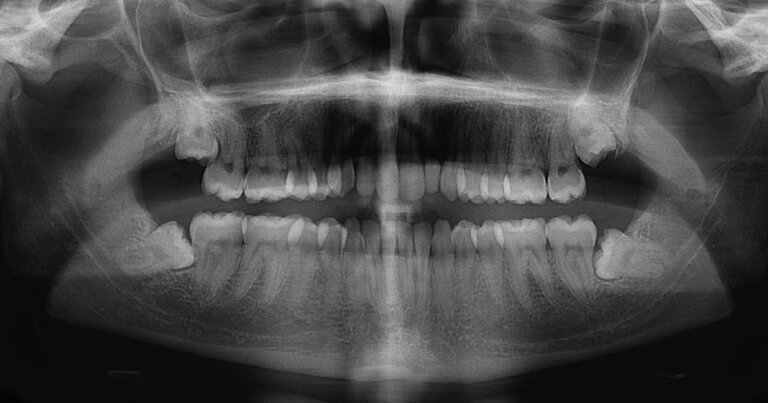
Signs And Symptoms Of Tooth Decay In Wisdom Tooth
Recognizing the signs and symptoms of tooth decay in wisdom teeth is crucial for timely intervention and treatment. Look out for:
- Toothache or Tooth Sensitivity: Pain or discomfort, especially while eating hot, cold, or sweet foods, can indicate decay.
- Visible Holes or Dark Spots: Cavities or discoloration on the wisdom tooth may be visible during routine checks.
- Bad Breath or Unpleasant Taste: Decaying teeth can harbor bacteria, causing halitosis or a bad taste in your mouth.
- Gum Pus or Abscess Formation: Advanced decay can lead to gum swelling, pus formation, or an abscess near the tooth, which requires immediate attention.
If you experience any of these symptoms, consult a dentist promptly to prevent the condition from worsening. For more information about Tooth Decay In Wisdom Tooth, please contact us.
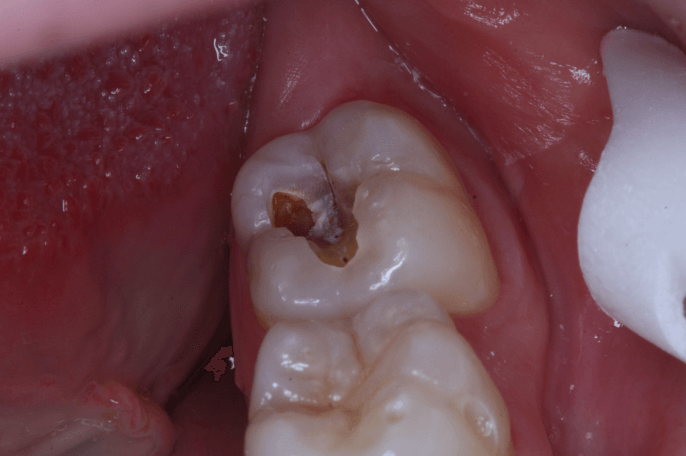
Treatment Options For Tooth Decay In Wisdom Tooth
When tooth decay affects a wisdom tooth, several treatment options are available to address the issue effectively:
- Dental Fillings: For early-stage decay, fillings can restore the tooth by sealing the cavity and preventing further damage.
- Root Canal Therapy: If the decay has reached the tooth’s pulp, a root canal may be necessary to remove infected tissue and seal the tooth.
- Extraction: Severely decayed or problematic wisdom teeth are often extracted to prevent further complications. This is a common solution for impacted or recurrently infected wisdom teeth.
Your dentist will evaluate the condition of your wisdom teeth and recommend the most appropriate treatment. For more information about Tooth Decay In Wisdom Tooth, please contact us.
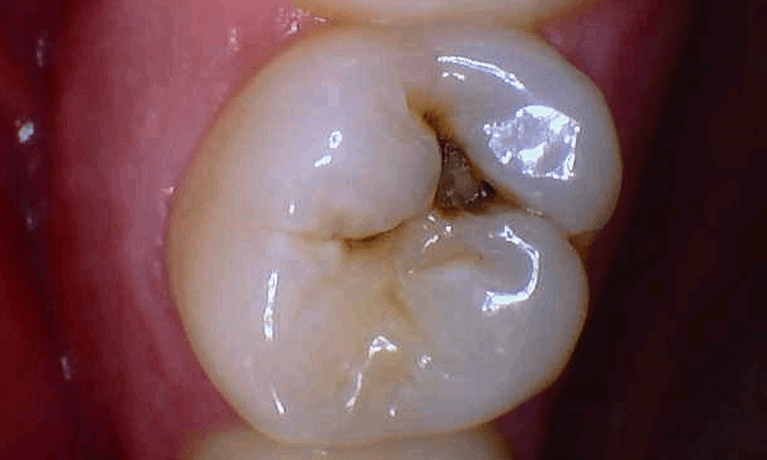
Managing Tooth Decay In Wisdom Tooth Until You Can See The Dentist
If you’re unable to see a dentist immediately, follow these steps to manage discomfort and minimize damage:
- Use Over-the-Counter Pain Relief: Take ibuprofen or acetaminophen as directed to reduce pain and inflammation.
- Keep the Area Clean: Gently brush and floss around the wisdom tooth. Rinse with warm salt water or an antibacterial mouthwash to reduce bacteria and inflammation.
- Apply a Cold Compress: Place an ice pack wrapped in a cloth against your cheek for 15-20 minutes to reduce swelling and numb the pain.
- Eat Soft Foods: Stick to non-irritating foods like yogurt, mashed potatoes, or soup. Avoid chewing on the affected side to prevent further irritation.
These measures can help manage symptoms until you can receive professional dental care. For more information about Tooth Decay In Wisdom Tooth, please contact us.
Frequently Asked Questions About Tooth Decay in Wisdom Teeth
- How can I prevent decay in my wisdom teeth?
Maintain good oral hygiene by brushing twice daily, flossing, and using mouthwash. Regular dental checkups can also help identify potential issues early.
- Should I have my wisdom teeth removed even if they’re not causing problems?
Wisdom teeth that are healthy, properly aligned, and fully erupted may not need removal. However, your dentist can assess if extraction is recommended based on your oral health.
- Is tooth decay in wisdom teeth always painful?
Not necessarily. Decay can sometimes progress without noticeable symptoms. Regular dental exams are essential for detecting issues before they become severe.
- How long does recovery take after wisdom tooth extraction?
Most people recover within a week, though it may take longer for complex extractions. Follow your dentist’s post-operative instructions for optimal healing.
At Atlas Dental, we are committed to providing expert care for wisdom teeth, from managing decay to extraction if necessary. If you suspect tooth decay or need assistance with wisdom tooth-related issues, contact us today to schedule an appointment.
We also think you’ll like…
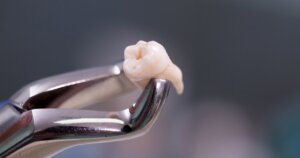
Oral Surgery Post Operative Instructions
Oral Surgery Post-Operative instructions How To Ensure A Smooth Recovery After Oral Surgery Recovering from oral surgery, whether it’s a tooth removal, wisdom tooth extraction,
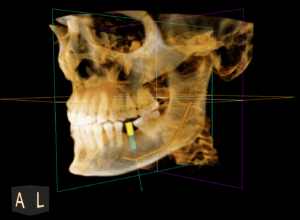
CBCT Scan
CBCT Scan What Is A CBCT Scan? A Cone Beam Computed Tomography (CBCT) scan is a non-invasive imaging technique that produces highly detailed 3D images

Oral Conscious Sedation
Oral Conscious Sedation What Is Oral Conscious Sedation? Oral conscious sedation is a safe and effective solution for people who experience dental fear or anxiety.
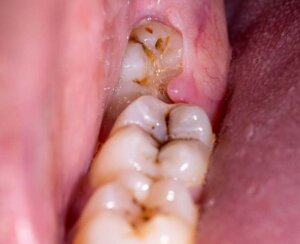
Impacted Wisdom Tooth
Impacted Wisdom Tooth What Is an Impacted Wisdom Tooth? If you’re feeling a persistent ache at the back of your mouth, it might be due
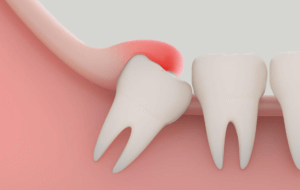
Wisdom Tooth Infection
Wisdom Tooth Infection What Is A Wisdom Tooth Infection? Wisdom teeth, also known as third molars, are the last set of teeth to emerge, usually

Wisdom Tooth Removal Post Operative Instructions
Wisdom Tooth Removal Post-Operative Instructions What You Should Do After Your Wisdom Tooth Extraction Surgery Wisdom tooth extraction is a surgical procedure to remove one

